What is it about this time of year that stirs up sensation in all of us?
November and December have produced some absurd and entertaining headlines of which I could not do justice to all at once. So for the political and sporting contingent here are two that caught the eye.
Gordon Brown “saved the world”
Prime Minister Gordon Brown’s not so finest hour came when he announced to his peers in the Commons that he had heroically “saved the world” from certain despair.
While others mock, spare a thought for the gentle Scotsman. After months of hesitation, mumblings and aimlessness, Brown has finally latched onto his own unique strengths in this era of economic turmoil.
If that sees him donning a cape and spandex and soaring to the rescue of those dole queue damsels in distress then who are we to burst his superhero bubble. But as in every graphic novel there are always casualties and it’s just a shame that even this hero could not save our beloved Woolworths. Oh well. We’ll have to go somewhere else for our pick’n’mix now.
The world of sport has not been spared the influence of the festive fervour. Football has always found the Christmas period to impose that extra little bit of strain and duress upon its players and pundits.
Maybe this stress was too much for Arsenal defender William Gallas when he penned a personal attack on several of his colleagues in his November released autobiography. Then again perhaps he was just following his publicist’s four-step-plan to any successful autobiography.
1. Behave bizarrely and erratically and appear to be on or just over the brink of a nervous breakdown 2. Make outlandish comments and criticisms of those around you in the hope of jeopardising your career. 3. Release said autobiography. 4. Enjoy the frenzied backlash of media spotlight and public fallouts following its release which practically writes the sequel itself!
Credit Crunch Brunch
So, where do these outcries for attention stem from?
Perhaps there’s something in the water at this time of year. Maybe some people have had one too many of the Credit Crunch Brunches that are proudly emblazoned on every public house and café window. It appears that the perpetual reminder of the doom and the gloom that is setting in being brought to us by the free papers of the Metro on our way to work is not enough for some. Our memory and conscience should be jogged as we stare morbidly into our ‘Recession Special’ lunch time soup or attempt to escape for a pint of refreshment only to be interrupted by the next bulletin of stock falls and share collapses.
Furthermore, as December approached and the impending shopping season gathered pace (or not as the Government’s cut in VAT made evident) it’s enough to drive even the most composed to quiver and shake in fear. Now that Christmas day has rolled around and you have picked yourself up following that unavoidable collision with the relatives, next up is the realisation that those resolutions thought out so commendably have remained hopelessly unaccomplished. It’s a wonder how the Turkey ever gets cooked.
But enough, this is the season of goodwill and cheer. And as long as there are mince pies, there will always be another day and another story – but as we’re all doing it, here’s a rant of my own on the less obvious side of discrimination in football.
John Terry, coincidentally the England football team captain, was sent off for a dangerous foul in the match between Chelsea and Everton last Monday. Following the game the former Premiership referee Graham Poll commented on the incident and revealed his believed duty of discrimination that runs through the mindset of the referee. “You have to remember you are sending off the England captain,” wrote Poll in his article for the Daily Mail. In his press conference the following day Arsene Wenger rightly felt aggrieved by the possibility that one player could be afforded such exemption from the rulebook.
In looking over Terry’s treatment this season there is a glaring example of this special treatment. A red card picked up in the victory over Manchester City on September 8 and the three games he would have been banned for were latterly rescinded by the Professional Game Match Officials Board.
In that instance, Graham Poll’s insights into the Football Association’s thinking may have shed light on further inconsistencies. Vital England qualifying games against Kazakhstan and Belarus on October 11 and 15 were approaching and Terry needed minutes on the pitch to get back to full fitness. I wonder whether those in Soho Square remembered these factors before making their decision to rescind the ban.
Mince pies have run out
In contrast, the FA’s verdict for the bust up between Chelsea ground staff and Manchester United’s Patrice Evra reveals the true might with which they wield recriminations when a player is not protected by the national armband. A whopping fine and a four game ban were swiftly dealt out to the Frenchman.
If the decision makers of the English game are trying to encourage home-grown talent and discourage foreign imports then perhaps this is all part of the plan. Or perhaps the mince pies have finally run out at Soho Square. Either way, these inconsistencies are not going unnoticed.
Wenger rightly argued, “English or not; 17-years old or 30…is it a sending off or not?!” By the FA’s thinking the English football captain walks higher than his fellow professionals. Maybe that is why JT has previously been spared punishment when berating the officials at every decision.
It appears the captaincy of one’s country is almost a ‘get out of jail free card’. Let’s hope the next player to inherit Terry’s mantle carries this trump card with a bit more respect.
Remember, and this goes for Mr. Brown as well, with great power comes great responsibility.
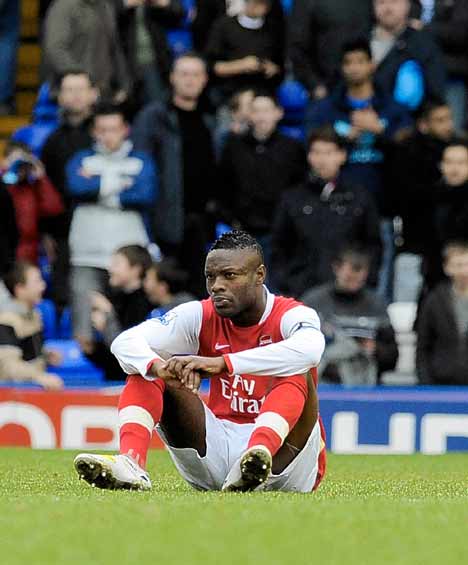
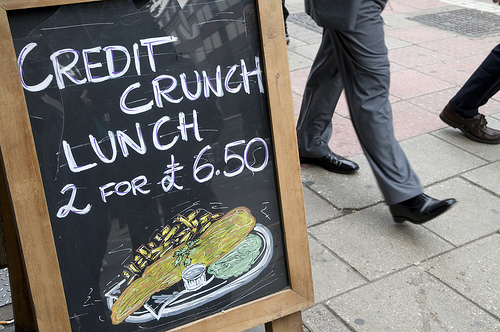

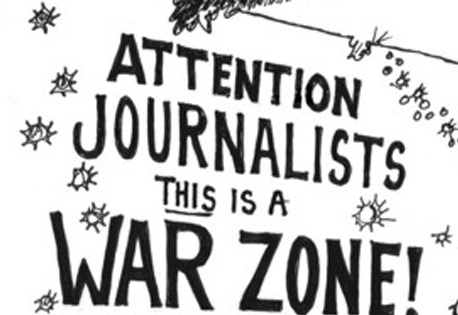
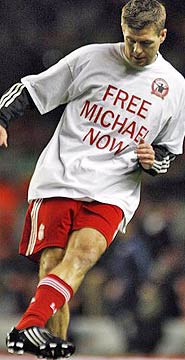
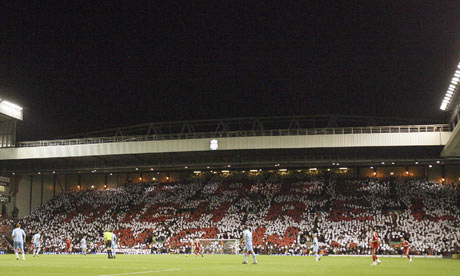
Latest comments